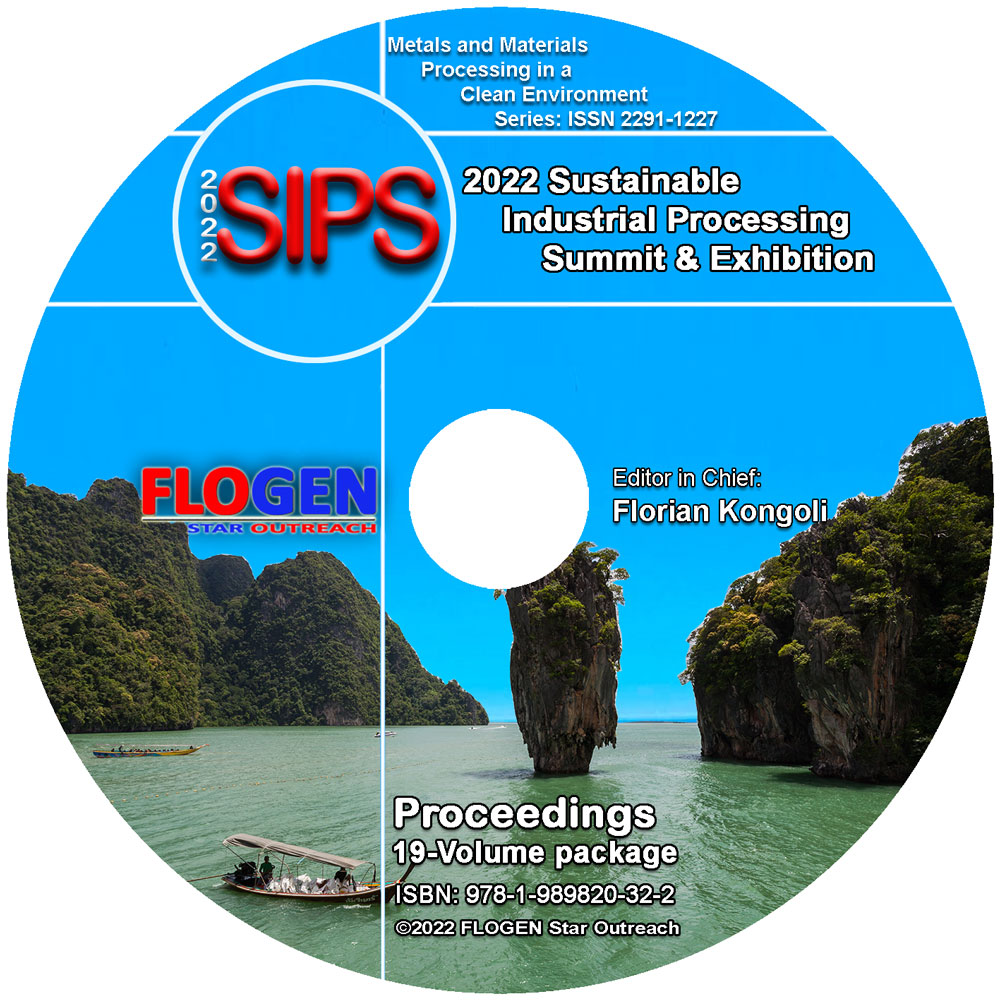2022-Sustainable Industrial Processing Summit
SIPS2022 Volume 18 Intl. Symp on Advanced Materials, Polymers, Composite, Nanomaterials, Nanotechnologies and Manufacturing
| Editors: | F. Kongoli, F. Marquis, N. Chikhradze, T. Prikhna, M. De Campos, S. Lewis, S. Miller, S. Thomas. |
| Publisher: | Flogen Star OUTREACH |
| Publication date: | 22 December 2022 |
| Pages: | 290 pages |
| ISBN: | 978-1-989820-68-1(CD) |
| ISSN: | 2291-1227 (Metals and Materials Processing in a Clean Environment Series) |

CD shopping page
A study on the dominant factor affecting the mechanical properties of high-density carbon blocks among oxygen functional groups and beta resin
Seungjoo Park1; Seon Ho Lee2; Song Mi Lee1; Doo-Hwan Jung1;1KOREA INSTITUTE OF ENERGY RESEARCH, Daejeon, South Korea; 2KOREA INSTITUTE OF ENERGY RESEARCH (KIER), Daejeon, South Korea;
Type of Paper: Regular
Id Paper: 529
Topic: 43
Abstract:
High-density carbon blocks are lighter than metals and have excellent heat and electrical conductivity, and in order to maintain excellent physical properties even in harsh environments, various fields such as semiconductors, automobiles, rockets, nuclear power, EDM, mechanical seals, etc. and a certain importance is emerging. The high-density carbon block can be distinguished into a unidimensional system and a binary system according to the type of raw material. A system is a substance that requires binder materials.
In this study, a point where the tendency of mechanical properties changes at a specific molding pressure was found and the cause was identified. First, XPS analysis was performed to determine the oxygen functional group of binderless coke. And the content of beta resin, which mainly affects formability and heat treatment, was analyzed. Then, after observing the tendency of mechanical properties according to the molding pressure, it was revealed what factors had a dominant influence on the mechanical properties for each area. As a result, it was found that the oxygen functional group had a more dominant effect in the region of 200 MPa or less, and the content of beta resin had a more dominant effect in the region above 200 MPa. In addition, it was found that beta-resin prevented the formation of pores in the high-density carbon block at high molding pressure, thereby steadily increasing mechanical properties.